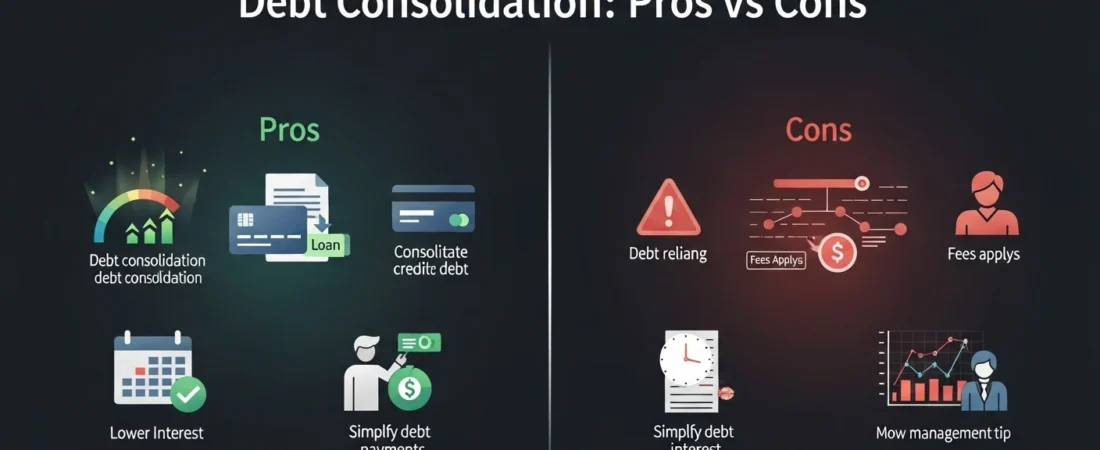Navigating multiple debts can feel overwhelming, with different due dates, interest rates, and payment amounts creating a confusing financial picture. A debt consolidation loan offers a potential solution by combining several debts—like credit card balances or personal loans—into a single new loan. This strategy simplifies the repayment process and can make a person’s financial life much more manageable. However, it’s not a perfect solution for everyone; it comes with a distinct set of advantages and potential drawbacks.
📌 Table of Contents
- The Pros of Debt Consolidation
- The Cons of Debt Consolidation
- Final Thoughts on Debt Consolidation Loans
✅ The Pros of Debt Consolidation
The most significant benefit of a debt consolidation loan is the simplified payment structure. Instead of making several payments to different creditors each month, you make just one payment to a single lender. This simplifies budgeting and reduces the risk of missing a payment, which could damage your credit score.
Another major advantage is the opportunity to secure a lower interest rate. High-interest debts, especially from credit cards, can make it difficult to make significant progress on the principal. By consolidating these debts into a single loan with a lower interest rate, you can reduce the total amount you pay over time. For example, replacing a credit card balance at 22% interest with a consolidation loan at 10% can save you hundreds or even thousands of dollars.
A debt consolidation loan can also provide a clear path to being debt-free. The new loan comes with a fixed repayment period, meaning you know exactly when you will pay off the debt. This clear timeline can be a powerful motivator, helping you stay on track and see an end to your debt journey.
⚠️ The Cons of Debt Consolidation
Despite the benefits, a debt consolidation loan isn’t without its risks. One of the main downsides is the potential for a longer repayment period. While a lower monthly payment might seem appealing, it could be tied to a longer loan term. This means you might pay less each month, but you could end up paying more in total interest over the life of the loan. It’s crucial to compare the total cost of the new loan with the total cost of your current debts.
Another significant risk is that a person might not have addressed the original spending habits that created the debt. Without changing those behaviors, they could easily fall back into debt, ending up with the new consolidation loan plus additional credit card balances. A debt consolidation loan is a tool, not a cure. If you do not change the underlying issues, you could find yourself in a worse financial position.
Finally, some consolidation loans come with fees and charges. Lenders may charge an origination fee, which is a percentage of the loan amount, or prepayment penalties. These fees can offset the savings from a lower interest rate, so you must factor them into your decision-making process. Always read the fine print and ask your lender about any potential fees.
💡 Final Thoughts on Debt Consolidation Loans
In conclusion, a debt consolidation loan can be an excellent way to simplify your finances and reduce the cost of your debt, but it requires careful consideration. Before moving forward, you must understand all the costs involved and be committed to a change in your spending habits.
📚 External Resources (DoFollow Links)
- Consumer Financial Protection Bureau: Debt Consolidation
- NerdWallet: Is Debt Consolidation a Good Idea?
